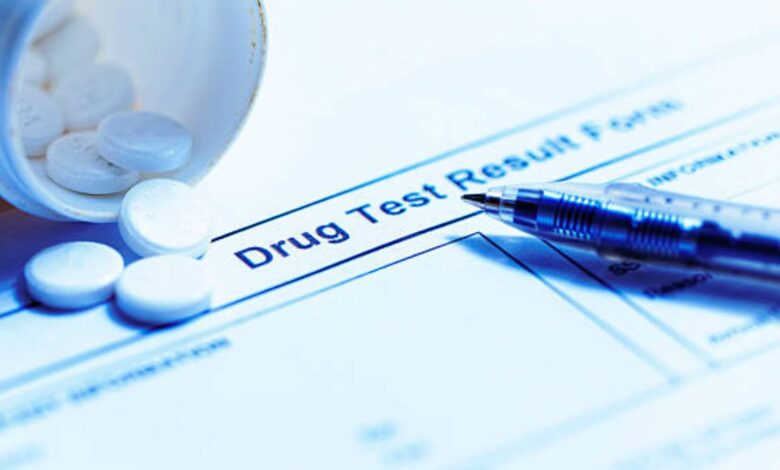How long does phentermine stay in your system for drug tests?

Phentermine is a widely used prescription medication that aids in weight loss. For many, it represents a new beginning on their journey to better health. However, questions often arise about how this powerful stimulant affects the body and its longevity in the system. If you’re considering phentermine or currently using it, you might be wondering: How long does phentermine stay in your system? This question becomes even more critical if you have an upcoming drug test or are simply curious about its effects on your body. Let’s dive into what phentermine is, how it works, and everything else you need to know regarding its presence in your system.
How Phentermine Works in the Body
Phentermine is a prescription medication primarily used for weight loss. It acts as an appetite suppressant, targeting the central nervous system to help reduce hunger pangs.
Once ingested, phentermine increases the release of neurotransmitters like norepinephrine. This triggers a sense of fullness and reduces cravings for food. As your body responds to this stimulation, energy levels can also rise, promoting increased activity.
The drug’s chemical structure resembles amphetamines, which explains its stimulating effects. However, unlike traditional stimulants, phentermine focuses on curbing appetite rather than increasing adrenaline or stamina.
Metabolized mostly by the liver, phentermine has a relatively short half-life ranging from 20 hours to about 40 hours in some individuals. The actual duration it remains active varies based on individual metabolism and other factors such as diet and hydration levels.
Factors Affecting How Long Phentermine Stays in Your System
Several factors influence how long phentermine remains detectable in your system. One major aspect is individual metabolism. Everyone metabolizes substances differently, which can significantly impact clearance time.
Age also plays a role. Younger individuals typically process medications faster than older adults due to variations in liver function and overall health.
Body composition matters too. Those with higher body fat may retain drugs longer, while leaner individuals might eliminate them more quickly.
Hydration levels can affect drug excretion as well. Proper hydration usually promotes efficient metabolic processes, aiding the removal of substances from the body.
Frequency of use is crucial. Regular users may find that phentermine stays in their system longer compared to occasional users due to accumulation effects over time.
Detection Time for Different Drug Tests
The detection time for phentermine can vary significantly depending on the type of drug test administered.
In urine tests, which are the most common, phentermine typically remains detectable for about 1 to 4 days after use. This time frame may extend if you’ve used it consistently over an extended period.
For blood tests, phentermine has a shorter window of detection. Generally, it can be identified in your bloodstream for up to 24 hours post-ingestion.
Saliva testing is another method that some employers or facilities might use. In this case, phentermine generally remains detectable for around 1 to 3 days.
Hair follicle tests provide a longer detection timeframe and could identify drug use months later. However, this method isn’t commonly used specifically for detecting phentermine but rather focuses on other substances like narcotics or THC.
Tips for Clearing Phentermine From Your System
If you’re looking to clear phentermine from your system, hydration is key. Drinking plenty of water can assist in flushing out toxins more efficiently. Aim for at least eight glasses a day.
Incorporating exercise into your routine can also help expedite this process. Physical activity boosts metabolism and encourages the body to expel substances faster.
Consider consuming foods rich in antioxidants, like berries and leafy greens. These can support liver health and promote detoxification.
Avoiding alcohol and caffeine might be wise during this time as they can strain your system further.
Ensure you get adequate sleep; rest is vital for recovery and helps the body function optimally while clearing medications like phentermine.
The Importance of Consulting a Doctor Before Taking Phentermine
Before starting any weight loss medication, it’s crucial to consult a doctor. Phentermine is no exception. This prescription appetite suppressant can have varying effects based on individual health conditions.
A healthcare provider will assess your medical history and current medications. They can identify potential interactions or contraindications that may arise when taking phentermine.
Moreover, doctors provide tailored recommendations for dosage and duration of use. This personalized approach maximizes benefits while minimizing risks.
Regular check-ins with your physician during the treatment course ensure safety and efficacy. Your doctor might suggest lifestyle modifications alongside medication for better outcomes in weight management.
Professional guidance helps navigate the complexities associated with phentermine use effectively and safely.
Conclusion
Phentermine is a powerful medication that can help with weight loss, but understanding how it interacts with your body and the potential implications for drug testing is crucial. The duration phentermine stays in your system varies based on several factors like metabolism, dosage, and frequency of use.
Different drug tests have varying detection times, which means you should be aware of when you’re being tested if you’ve taken phentermine. If there’s ever a need to clear this substance from your system quickly, knowing some tips can make a difference.
Always prioritize safety by consulting with a healthcare professional before starting any new medication or treatment plan. They can provide personalized advice tailored to your needs and monitor any possible side effects.
Being informed can empower you as you navigate through the complexities of medications like phentermine while keeping your health in check.



